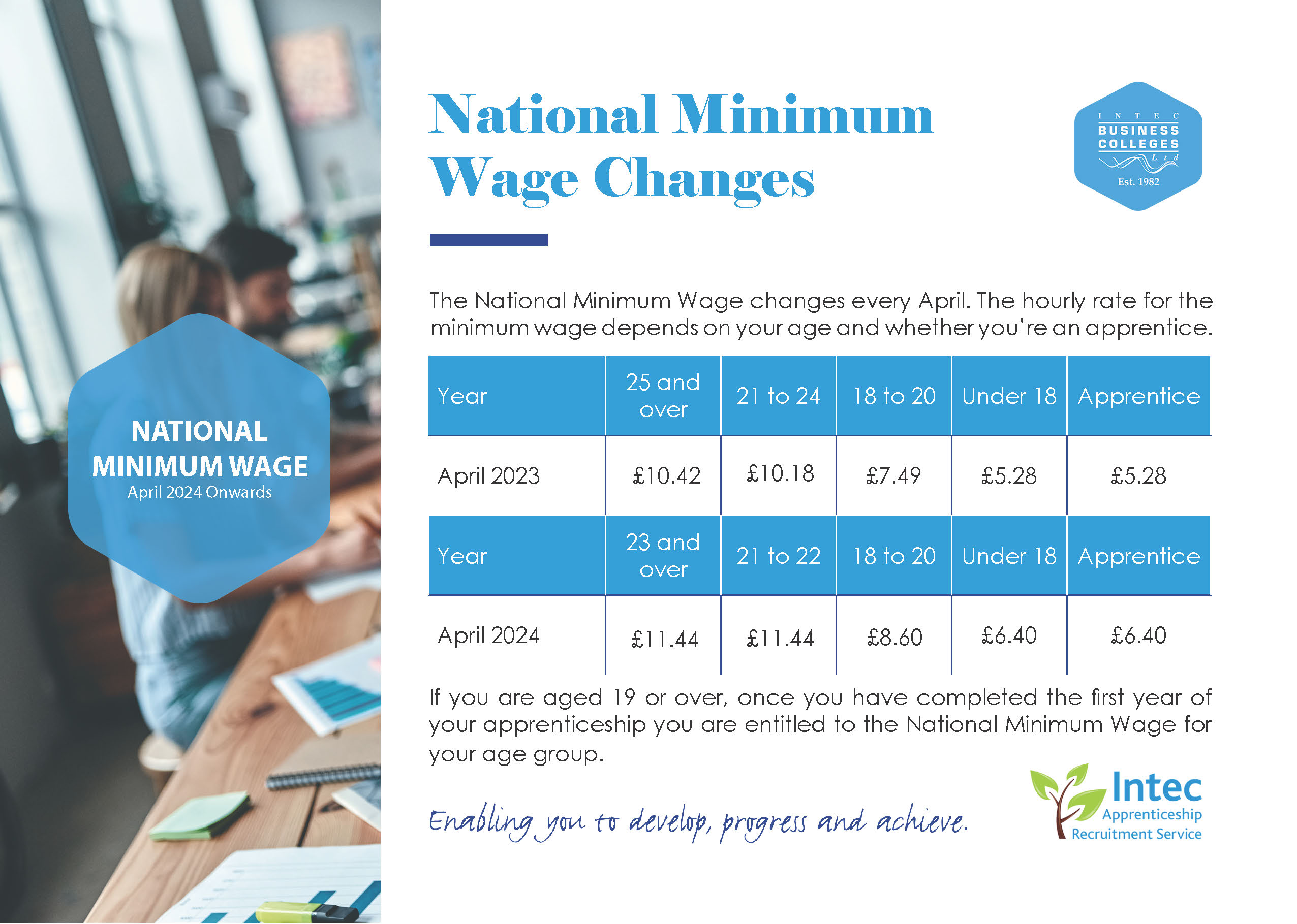Posted: Thursday, 14 March 2024 @ 10:55
From 1st April 2024, the National
Minimum Wage, Living Wage and Apprenticeship Wage will increase.
The recent updates underscore the value of
apprentices in the UK‘s increasingly dynamic workforce and the tangible
benefits of employers, creating an environment that promotes training and
development.

Enhanced National Apprentice
Wage: Attracting
Quality Talent
The increase in the national apprentice wage
demonstrates a clear
The increase in the national apprentice wage sends a positive
message to employers about the government's recognition of apprentices' value and
an acknowledgment of the significant role apprentices play within
industries. Many of our partners already commit
to paying above the minimum apprenticeship wage as by offering a competitive salary,
businesses can attract his wage adjustment helps businesses attract a
wider array of motivated and skilled individuals, elevating the calibre of
their apprenticeship programmes and, consequently, their future workforce.
Moreover, paying apprentices a higher wage
reflects well on the company's brand, showcasing it as a supportive and
forward-thinking employer and creating a positive corporate culture that values
growth and learning.
National Insurance Contribution
Exemption: Direct Financial Benefits
One of the key financial incentives for
employers, to hire through an apprenticeship scheme is exemption from paying
National Insurance contributions for apprentices under the age of 25. This
exemption offsets the wage increase, making it more economically feasible to
hire and train apprentices by reducing their overall cost of employment.
Employers can reinvest the savings from these
National Insurance Exemptions back into their businesses, enhancing training or
induction programmes, investing in learning for their current workforce or
developing their future talent pipelines.
Apprenticeships as an Incentive: £1000
for every apprentice hired aged 16-18
The UK government also offers an £1,000 incentive to
employers for each new apprentice they hire aged between 16 and 18. This
incentive aims to encourage the employment of younger apprentices, facilitating
early professional development and career progression. For employers, this
bonus further offsets the costs associated with training and integrating
apprentices into their businesses and provides motivation to invest in the
youth and future of the industries they operate in.
The Bigger Picture: A Win-Win for
Employers and the Economy
By investing in apprentices, organisations are
not only cultivating a capable and motivated workforce but also committing to strategic
investment: Organisations can enhance their
competitive edge, bridging potential skills gaps to build a resilient, skilled, and competitive workforce, ready to
navigate the challenges and opportunities of the future.